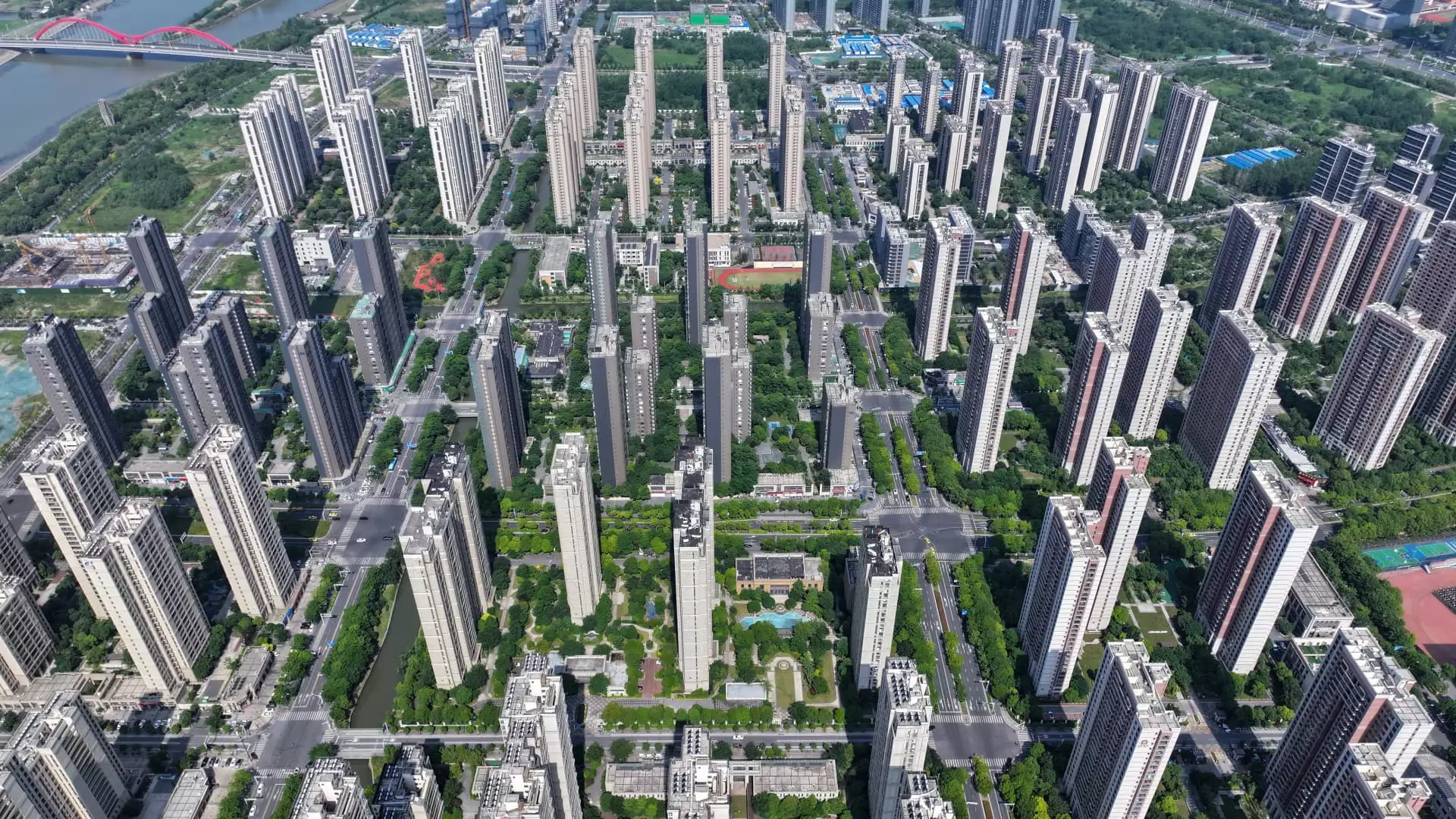Recent trading sessions have seen a spectacular resurgence in the value of Chinese property stocks listed in Hong Kong, with many reaching their highest levels in over a year. This dramatic uptrend can be attributed to a cocktail of government stimulus measures aimed at revitalizing a beleaguered real estate sector that has traditionally been a cornerstone of China’s economic stability. The Hang Seng Index, which serves as a barometer for market performance, reported that the real estate sector was the standout performer, underlining the significance of this sector in the overall economic picture.
Among the most notable gains was Longfor Group Holdings, which experienced an impressive spike of more than 25%. Other major players in this sector followed suit, with Shimao Group soaring by an astonishing 87% and Kaisa Group posting a robust increase of 40.48%. These numbers highlight the market’s renewed optimism; investors appear to be reacting favorably to the regulatory loosening and financial alleviation strategies implemented by the Chinese government. Simultaneously, China Overseas Land & Investment and China Vanke also made significant strides, indicating a broader rally across various stakeholders in the real estate market.
Over the weekend, municipal governments in major Chinese cities rolled out measures aimed at boosting homebuyer confidence and addressing the stagnation that has plagued the real estate sector for years. In Guangzhou, the municipal authorities decided to eliminate all home purchase restrictions, while Shanghai altered the tax regulations to reduce the required payment period for buyers. Shenzhen similarly relaxed its purchasing criteria, allowing for a greater number of property transactions in select areas. These measures, introduced as part of a broader stimulus initiative, signal a commitment by the government to reignite interest in the housing market, even as Morgan Stanley cautioned that achieving significant price recoveries and renewed demand may still remain problematic.
Despite the positive momentum, analysts remain cautious. Morgan Stanley noted that the prolonged decline of the real estate sector may leave a persistent gap in demand that could hinder growth. The construction and sales of properties once accounted for over 25% of China’s gross domestic product. However, the sector has struggled since 2020, primarily due to a crackdown on excessive debt accumulation by property developers. These challenges, coupled with the reluctance of consumers to engage in purchasing activities, mean that even with the implementation of supportive measures, significant hurdles linger on the path to recovery.
As investors savor the current gains, it is essential to approach this potential recovery with a sense of cautious optimism. The collective hope is that the recent reforms and stimulus efforts will not only stabilize the property market but also lay the groundwork for a healthier economic environment moving forward. Nonetheless, bridging the gap between government initiatives and tangible outcomes in buyer sentiment and market demand will be crucial in determining whether this surge is sustainable or merely a temporary spike in the long road to recovery for Chinese property stocks.


Leave a Reply